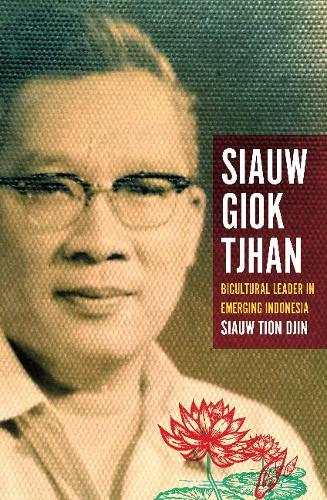
Siauw Giok Tjhan: Bicultural leader in emerging Indonesia
(Paperback)
Publishing Details
Siauw Giok Tjhan: Bicultural leader in emerging Indonesia
By (Author) Siauw Tiong Djin
Monash University Publishing
Monash University Publishing
1st February 2018
Australia
Classifications
General
Non Fiction
959.8035092
Physical Properties
Paperback
400
500g
Description
Siauw Giok Tjhan (1914-1981) was one of the most influential Chinese Indonesian political leaders active in the early decades following Indonesia's independence from 1945 to 1965.
His participation in politics at this time set him apart from the majority of Chinese who were regarded as non-political and business-minded. When Indonesian independence was declared in 1945, Siauw was appointed a member of the new Republic's legislative and executive bodies. He remained a high profile member of parliament until the end of 1965. A leader and co-founder of Baperki (the Consultative Body of Indonesian Citizenship), the largest organisation of Chinese Indonesians, from 1954 to 1965, he had widespread support from both peranakan and totok Chinese.
When the balance of power tilted to the right after October 1965, Baperki was attacked and banned. Siauw and many other Baperki leaders were arrested and interned without trial for twelve years. It was not until after the fall of President Soeharto in 1998 that his place in modern Indonesian history could be properly recognised. He made important contributions in relation to an inclusive Indonesian citizenship, propagation of a solution to the 'minority problem', which he defined as the integration approach, better known today as multiculturalism, and the proposal that the Chinese be accepted as one of the 'sukus' or ethnic groups of Indonesian nation.
Reviews
At last an English-speaking public can read an easily accessible account of the life of this ethnic Chinese who played an important role in Indonesias modern history.
-- Charles CoppelPolitically acute, well connected with and respected by national political leaders, Siauw turned Baperki into the most highly mobilized political organization ever of Indonesian Chinese
-- Daniel LevAuthor Bio
Siauw Tiong Djin is the son of Siauw Giok Tjhan. He was nine years old when his father was arrested by General Soeharto in November 1965. Like millions of other children in Indonesia whose parents were purged during the New Order period (1965 to 1998), Tiong Djin grew up with the stigma that his father had committed treason. Between 1969 and 1973, while his father was in detention, Tiong Djin visited him frequently and they had long discussions about his fathers political journey and political aspirations. These discussions inspired Tiong Djin to restore his fathers name and reputation. Tiong Djin has a Bachelor of Engineering (1979), Master of Engineering (1982) and Master of Business Administration (1990) from RMIT University. While working as an engineer he embarked on his PhD in Political Science at Monash University, completing it in 1999.
